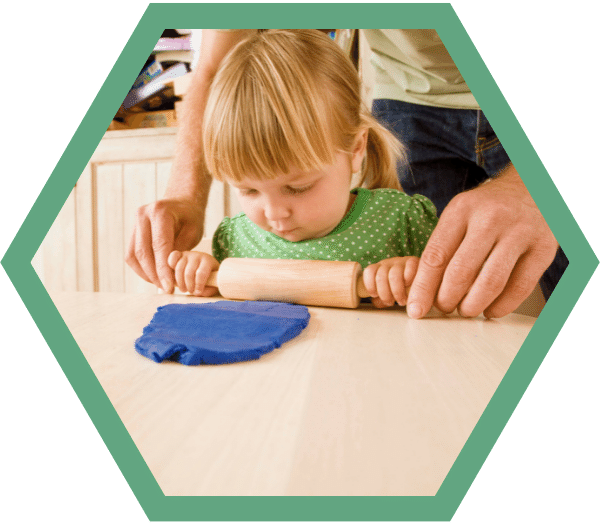Encouraging early development

General tips and advice
Get down to your child’s level to play – sit on the floor – and make sure you are facing your child so they can see and hear you clearly.
Match the levels of your child’s language, such as using two-three words together if this is what your child uses, for example, ‘cat purring’.
Repeat the same word or words lots of times in different situations, such as ‘big car’, ‘red car’ or ‘fast car’.
Take turns with your child when you are playing, listening and talking.
Comment during play rather than asking lots of questions, such as ‘you’re building a tower!’ (not ‘what are you building?’).
Expand on your child’s utterances, such as if they say ‘banana’, you could say ‘yellow banana’ or ‘eat banana’.
Use the same words every time as part of everyday routines, such as ‘socks on’ when getting dressed.
If you ask your child a question, give plenty of time to respond. If they do not answer after a few seconds, give a clear model of the word, such as ‘it’s a cat’.
Accept your child’s attempts at words and repeat them back correctly, such as if they say ‘tat’, you say ‘yes, it’s a cat’.
Offer alternatives, such as ‘ball or doll?’ so they are given the words needed to make choices.
Attention and listening
Many young children find it difficult to learn to wait, share and take turns. This short attention span may slow down their ability to learn new words and speech sounds.
Develop understanding
Children understand words long before they can say them. It’s important to help your child to develop their understanding as a foundation for learning to speak.

This guide has been based on the guide developed by Cambridgeshire Community Services NHS Trust.
Learn more at www.cambscommunityservices.nhs.uk

